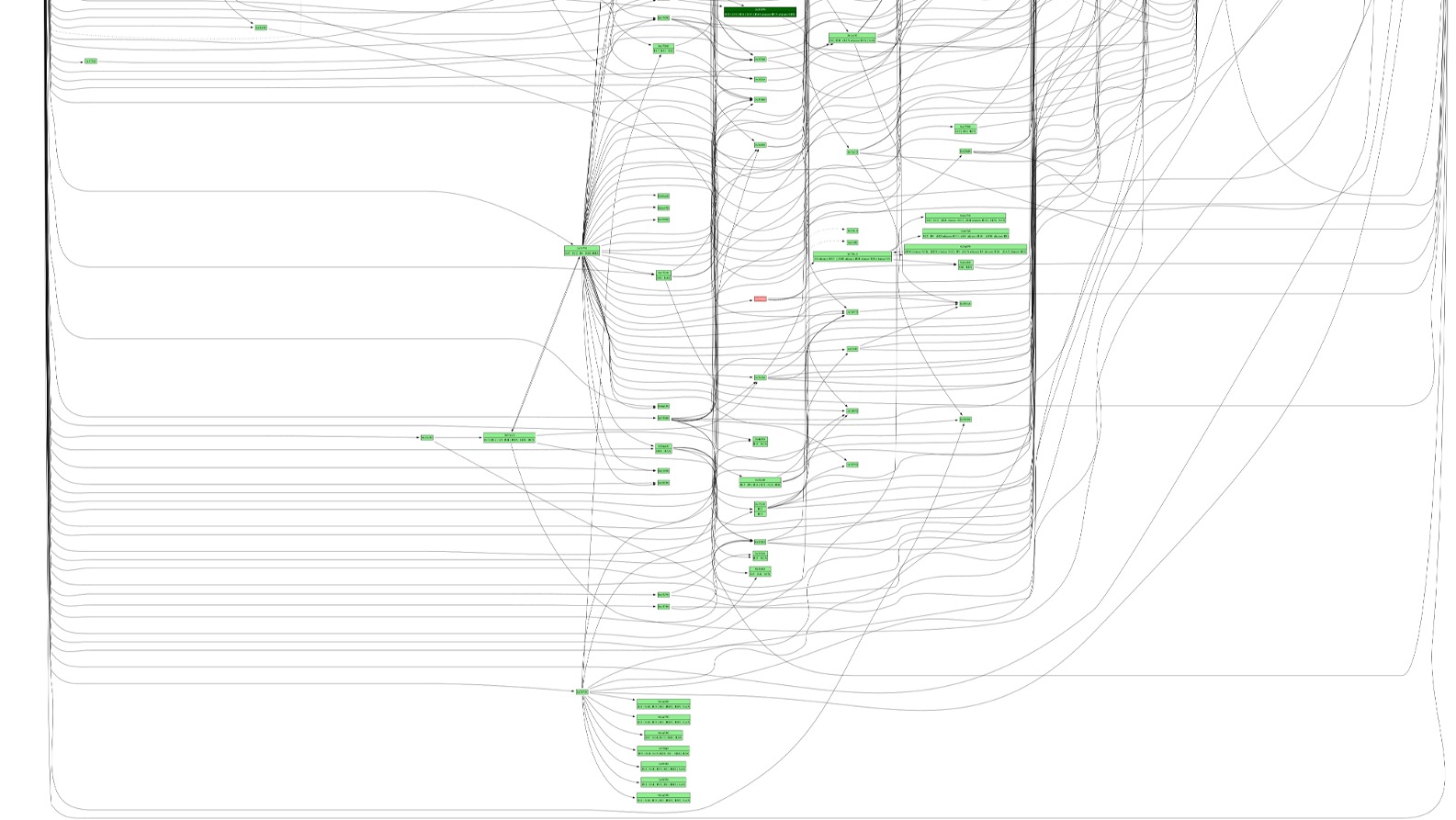Welcome to LLRM project website!
The Low-Level Reasoning Machine (LLRM) project is exploring techniques for automated reasoning of program behaviors at lower levels of abstraction (e.g., binary, assembly, machine-independent intermediate representations) to verify program properties. A particular focus of interest is reasoning about and verifying security properties.

Control flow graph (snippet) automatically lifted from the ssh/OpenSSH binary by the FoxDec verified decompiler.
An overarching theme of the project is the automated reasoning of low-level code, enabled through the formalization of instruction set architecture (ISA) semantics (e.g., x86-64, ARM), decompilation to higher abstraction levels, and prover-assisted reasoning and verification. Low-level reasoning and verification are motivated in part by application settings where source codes are wholly or partially unavailable, outdated and decaying build processes and environments, third-party libraries and tools that are no longer available or backward compatible, and the need to rapidly patch program errors, especially those that can cause security exploits. Motivation also includes a relative reduction in trust bases (e.g., TCB excludes compilers, linkers, and runtimes) and a relative ease in formalizing ISA semantics (as opposed to formalizing programming language semantics).
Ongoing thrusts include formalizing x86 semantics (Chum, libLISA), verified decompilation (FoxDec), verifying memory corruption-related weird machines (Luce), verifying x86 disassemblers (DSV), and formalizing ARMv8 semantics and verifying ARMv8 binaries (Renee).
News
July 2025
Our postdoc, Ali Shokri has joined University of Houston’s Computer Science Department as an Assistant Professor.
February 2025
Our PhD student, Md Syadus Sefat, defended his PhD thesis, which contributed to extended incorrectness logic.
January 2025
Paper on formally verified binary pointer analysis is accepted at ICSE’25.
October 2024
Paper on extended incorrectness logic is accepted at POPL’25.
July 2024
Project FoxDec’s paper on verified x86-64 binary lifting is accepted at CCS’24.